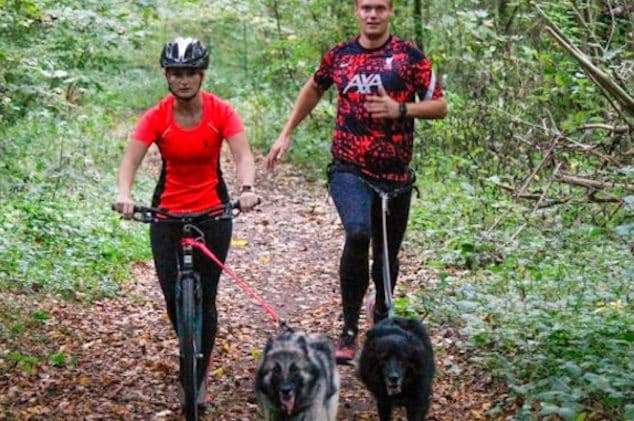
Fitness and exercise trends to watch out for the 2020: from personalized supplementation, hybrid gym memberships, wearable technology, recovery equipment, fitness apps, canicrossing and even fitness gamification.
In the spirit of blink and you’ll miss it, we are already one quarter of the way through 2020s – where does time go to?
While the past 30 months have been pretty challenging for most people, some industries remain buoyant despite navigating through a tough period.
That is certainly the case where the fitness sector is concerned, with the early part of the decade providing a timely reminder to people about why living a healthy lifestyle is so important.
With that in mind, we take a closer look at some of the popular fitness trends that will shape the rest of the decade.
Personalised supplementation
As highlighted by the fitness experts at PreWorkout.org, improved scientific research has helped the supplements industry boom in recent years.
A key trend that is expected to drive future growth is personalised supplementation, which will be based on blood chemistry and individual goals.
Many health organisations now offer full screening programmes that includes body composition analysis, cholesterol check, blood sugars, blood pressure and fitness assessment.
More people will use these services before consulting with health professionals or registered dietitians to formulate a personalised dietary and supplementation plan.
Wearable technology
Public spending on wearable devices worldwide is set to top $90 billion this year and the gravy train is showing now signs of slowing down.
People use wearables in a wide range of ways including measurement of physical activity, heart rate, sleep pattern and overall wellness.
As we have seen with advancements in other forms of technology, fitness wearables will continue to become more powerful over the coming years.
Products such as the Oura ring already cram a lot into a small package – we expect to see even more features added before 2030 comes around.

Fitness apps
More than 800 million people worldwide use fitness apps, creating a sector that will be worth more than $16.5bn by the end of this year.
However, with smartphone manufacturers now including fitness trackers in their latest devices, fitness app publishers are under pressure to evolve their products.
Social fitness apps and guided workout apps have become increasingly prevalent, with brands such as Strava and Peloton leading the charge.
Diet apps are also growing in popularity as people seek to take a more structured approach to their daily food intake.
Recovery equipment
‘And rest’. If you have every participated in a fitness class, it is highly likely the instructor will have uttered those two words after putting through your paces.
However, there is a ton of evidence that shows rest is only half of the story, which has created an opportunity for the exercise recovery equipment sector to grow.
Massage guns and vibrating rollers are amongst a plethora of emerging products that have been proven to significantly aid recover times.
The next few years are likely to see recovery equipment become even more sophisticated, thus driving global revenues into another stratosphere.
Hybrid gym membership
There has already been a spike in the number of fitness facilities offering hybrid memberships and this trend should accelerate over the next couple of years.
While visiting a traditional gym remains hugely popular, an increasing number of people also want the option of working out remotely.
Technology allows gyms to stay connected with their customers like never before, so offering hybrid memberships makes perfect sense.
Gyms that stick to offering traditional memberships may well be forced out of business if they refuse to jump on the hybrid bandwagon.
Fitness gamification
While fitness and gaming may seem unlikely bedfellows, the two sectors have become heavily linked over the past few years.
Nintendo’s Wii console laid the foundations for the gamification of fitness, and advancements in technology have helped it become more widespread.
For many people, particularly amongst the Gen Z demographic, traditional fitness activities are ‘boring’ and only done by ‘oldies’.

On that basis, app-based platforms which blend the fun of video games with the intensity of serious training will grow in popularity over the next few years as fitness gamification continues apace.
Canicrossing
While exercising alone is not everyone’s cup of tea, it is not always feasible to find someone who is able to train alongside you.
Busy lifestyles often make it difficult for people to match their schedules with friends or family, but there are no such restrictions where dogs are concerned.
Canicrossing not only solves the issue of companionship while you are exercising, but also takes mundaneness out of walking your dog each day.
Sales of suitable harnesses for caincrossing have increased in recent times and are forecast keep rising over the next few years.
Exercise as treatment
It does not seem too long ago when people with injuries and illnesses were largely advised to stay off their feet and rest.
Things have changed dramatically in recent years, with initiatives such as Exercise is Medicine (EIM) gaining major traction in several international jurisdictions.
Managed by the American College of Sports Medicine (ACSM), EIM aims to make physical activity assessment and promotion a global standard in clinical care.
Physicians and other healthcare providers are encouraged to include physical activity when designing treatment plans and the practice should become commonplace during this decade.
Mindfulness
We have focused on physical exercise up to this point, but it is important not to overlook the mental health benefits of fitness activities.
Many in-person and online fitness programs now incorporate mindfulness techniques which help to support mental wellbeing.
Practicing activities such as yoga and meditation allow for improved neurological connections to be built between the mind and body.
With research continuing to extol the virtues of practicing mindfulness, this is likely to be one of the biggest fitness trends over the coming years.






